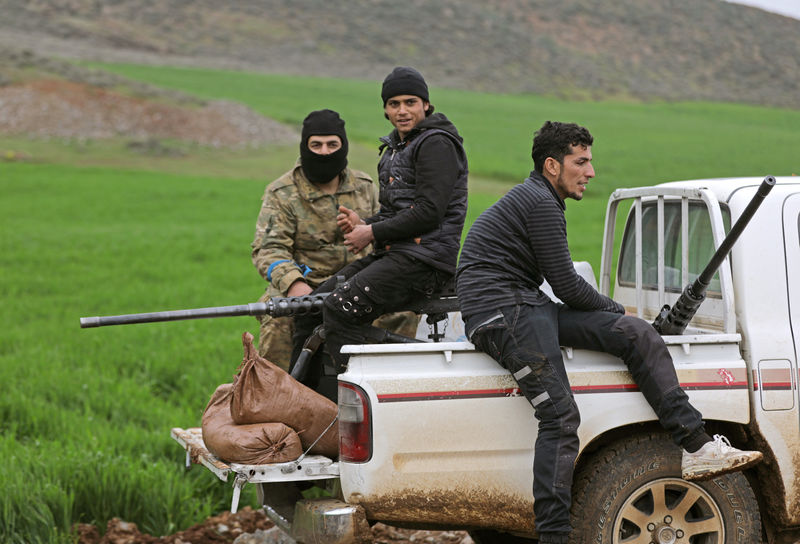ANKARA (Reuters) - Turkey deployed police special forces to the northwestern Syrian region of Afrin on Monday for a "new battle" in its five-week campaign against the Kurdish YPG militia, despite a U.N. call at the weekend for a ceasefire across Syria.
Turkish forces and their Syrian rebel allies, supported by Turkish air strikes, have pushed the Kurdish fighters back from most of Turkey's border with Afrin since they launched their assault on Jan. 20.
"The entrance of the special forces is in preparation for the new battle that is approaching," Deputy Prime Minister Bekir Bozdag told NTV broadcaster.
Dogan news agency reported that gendarmerie and police special forces teams entered Afrin from two places to the northwest of the region, saying they would take part in urban fighting and holding villages which Turkish forces have seized.
Most of the larger towns in Afrin region, including Afrin town itself, remain under YPG control.
Turkey says that Saturday's U.N. Security Council demand for a 30-day truce across Syria does not apply to its "Operation Olive Branch" offensive in Afrin. [nL8N1QE0AJ]
"Some regions such as eastern Ghouta are part of the U.N.'s ceasefire decision in Syria, but Afrin is not one of them," said Bozdag, who is also the government spokesman. "The decision will not impact our Olive Branch operation... in the Afrin region."
The U.N. Security Council resolution demands all parties "cease hostilities without delay...for a durable humanitarian pause for at least 30 consecutive days throughout Syria".
The cessation of hostilities does not apply to military operations against Islamic State, al Qaeda and groups associated with them or other groups designated as terrorist organizations by the Security Council.

Turkey says the YPG is an extension of the Kurdistan Workers Party (PKK), which has waged a three-decade-old insurgency in southeast Turkey. The PKK is branded a terrorist group by the United States and European Union as well as by Turkey, but the YPG is Washington's main military ally in northeast Syria.